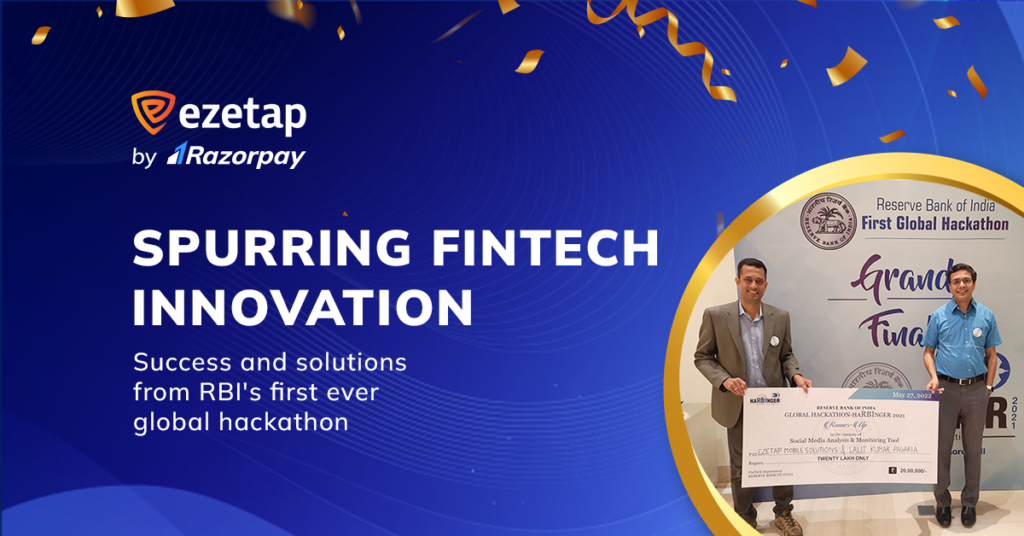The digital payments landscape in India has been evolving rapidly. With the exponential rise in the adoption of digital payments has also come the need for all stakeholders in the system to be increasingly wary of fraud. With fraudsters turning their attention to online channels, it is essential that businesses, consumers, banks, fintech companies and regulatory authorities develop innovative methods to check and prevent fraud. In FY22, online payment frauds reported by banks amounted to Rs.128 crore, according to data shared by the government. Globally, e-commerce fraud alone is estimated to cost merchants in excess of $48 billion in 2023.
RBI at the forefront of fintech innovation
When innovation is the need of the hour across the fintech ecosystem, it helps to work with a regulator as committed to this innovation as the RBI. Last year, the RBI unveiled an innovation hub (RBIH) in Bengaluru, to encourage sustainable financial innovation. In his address to the Global Fintech Fest last year, the RBI Governor assured fintechs that “We (RBI) will come two steps ahead if you come one step ahead with innovation.”
At Ezetap by Razorpay, we have always worked towards developing innovative solutions to combat fraud. We have always worked closely with all stakeholders to develop newer and better technologies to protect consumers and businesses. One such effort won Ezetap a runner-up award at HaRBInger 2021, RBI’s first-ever global hackathon. Featuring participants from over 22 countries, the hackathon, which revolved around the theme of ‘Smarter Digital Payments’, received over 350 responses.
The RBI has been proactive in fostering responsible innovation in the fintech industry. The creation of the regulatory sandbox to prevent and mitigate financial fraud has allowed stakeholders to test new products and services. The HaRBInger was another welcome step, encouraging the fintech industry to keep pushing the boundaries of what is possible, with technology.
The Ezetap solution

Tackling the hackathon’s problem statement of creating a ‘Social Media Analysis and Monitoring tool for detection of digital payment fraud and disruption’, the Ezetap team built a solution that demonstrated a first-of-its-kind use of AI/ML. Titled the Hidden Analytical Wall – Kavach (HAWK), the solution can monitor social media in order to detect digital payment fraud. It can also evaluate payment and fintech products using sentiment analysis.
In simple terms, the Fraud Module identifies possible fraudulent bad actors based on reports and complaints in social media and creates a central repository and report for action by law enforcement or regulatory bodies. The tool has a social media scraping feature that can look for certain keywords and hashtags that may indicate a user complaining about fraudulent transactions by bad actors (like the Jamtara fraudsters). It also has a TrueCaller Cross-Verifier feature, so that possible bad actors have their information verified against the Truecaller API.
Further, there are machine translation (to translate from regional languages) and optical character recognition (to identify phone numbers/VPAs from screenshots) capabilities.
The Sentiment Analysis Module monitors RBI-regulated bodies from specific news sites, app store & play store and for negative and positive news and reviews. It clusters these into different topics/categories and tracks the overall sentiment.
HaRBInger: A fulfilling experience
The hackathon experience was an immensely challenging and fulfilling experience for us. The team benefited a great deal from the mentoring process that was put in place by the RBI for the teams making the final cut.
The active support of the RBI will only embolden us to work on developing more innovative solutions to protect businesses and consumers from fraud. A year out (the hackathon concluded in May 2022), HaRBInger 2021 is a much-discussed topic among the leaders and the tech teams here at Ezetap by Razorpay. We are working actively towards bringing the idea to fruition and we can see the immense potential it holds.

